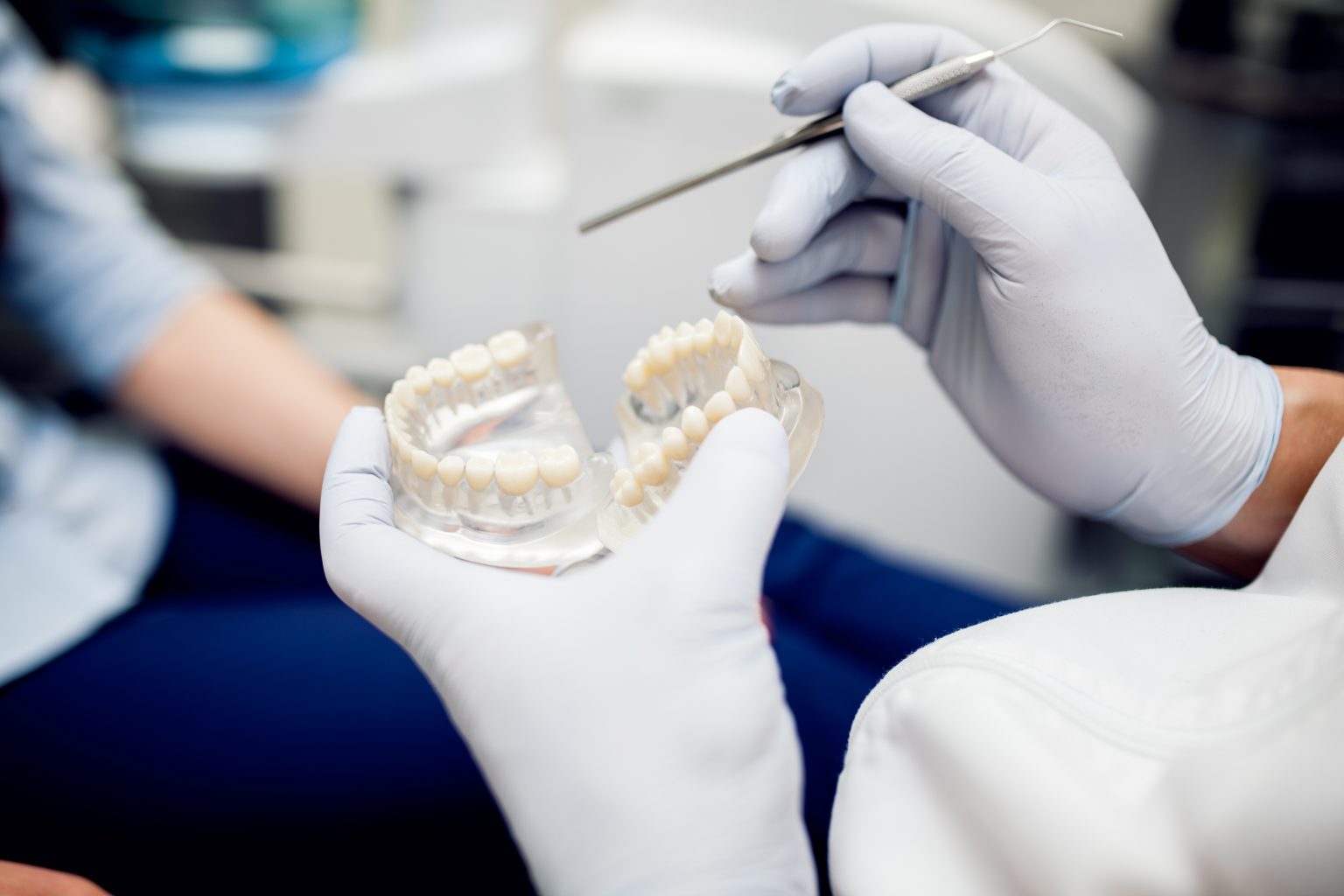Overview
It can be intimidating to have dentures at a younger age, like 40. However, for people with dental problems including decay, gum disease, or tooth loss, it is a popular and practical remedy. Knowing the procedure and available options can greatly impact your experience, regardless of whether you’re thinking about getting dentures for the first time or are having problems with your present set, including dentures feeling too thick.
Is 40 years old too early for dentures?
No, getting dentures at 40 is not too young. Although dentures are typically thought of as belonging to older folks, many people in their 30s and 40s need them because of oral issues including decay or tooth loss. At 40, dentures can restore your smile, improve chewing, and boost self-esteem, helping you live a more confident and comfortable life.
What kinds of dentures are suitable for adults who are younger?
There are several types of dentures available for individuals in their 40s:
- Full dentures: For people who have lost every tooth, full dentures are available.
- Partial Dentures: People who still have some natural teeth can wear partial dentures. They preserve the structure of your mouth and fill in the spaces.
- Dentures supported by implants: A more stable and long-lasting option, perfect for younger adults seeking a long-term fix.
Why are my dentures too thick?
Thick dentures can occur due to several factors:
- Inadequate fit: Dentures may feel heavy if they were not made to fit your mouth precisely.
- Material: The thickness of the dentures may vary depending on the kind of material utilized to make them. Certain materials could be thicker than custom, high-quality dentures, especially the less expensive ones.
- Manufacturing process: In order to assure durability, certain dentures are constructed thicker, however this may not be as comfortable. Overly thick dentures can make it uncomfortable to speak, difficult to chew, or create discomfort in the mouth.
Is it possible to thin dentures?
A dentist can really make adjustments to dentures. Your dentist can cut or modify the material if your dentures feel too thick to make the fit more comfortable. Nonetheless, it’s imperative to see a specialist rather than attempting to change them yourself, as incorrect adjustments could damage the dentures.
Are there any particular difficulties when receiving dentures at 40?
Obtaining dentures at forty can bring special difficulties:
- Psychological adjustment: In the beginning, younger patients might feel self-conscious about wearing dentures, but as they become used to them, this feeling usually goes away.
- Bone loss: When teeth are removed, the jawbone starts to recede. For younger patients, bone grafts or implants may be necessary to maintain facial structure and bone density.
Dentures usually last five to ten years. Younger people’s dentures may need to be updated several times throughout the course of their lifetime because they will probably use them for several decades.
How can I increase the comfort of my dentures?
In order to improve comfort with your dentures:
- changes: If they feel too big or unpleasant, make the required changes by visiting your dentist.
- Relines: Relining a denture involves reshaping the base to more comfortably fit the gums.
- Dentures manufactured to order: Investing in dentures made to order may improve fit and lessen problems with discomfort and thickness.
How should my dentures be maintained?
Your dentures’ lifespan can be extended with proper maintenance:
- Clean every day: Use denture cleanser and a soft-bristled toothbrush to brush away food residue and plaque from your dentures.
- Soak: To keep dentures wet and in form, soak them in a particular solution for the entire night.
- Frequent dental check-ups: Seeing your dentist on a regular basis can help detect problems early on and make the required changes for comfort and functionality.
In summary
Contrary to popular belief, getting dentures at 40 is more common than not, and it can be a terrific way to preserve one’s quality of life and oral health. Don’t be afraid to ask your dentist for changes if your dentures feel overly thick. Whether you’re 40 or older, dentures can provide comfort and confidence-boosting fit when properly cared for. Early resolution of these issues will guarantee a more seamless transition and long-term denture satisfaction.

